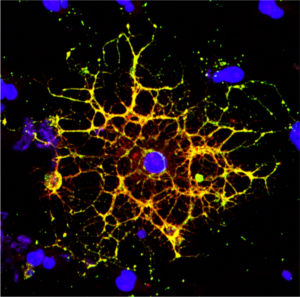by

For decades, LGBTQ+ patients have faced stringent requirements to donate blood—most gay and bisexual men were not allowed to donate at all. Now, however, many more of them will be able to give this selfless gift. The U.S. Food and Drug Administration, which regulates blood donation in this country, has reworked the donor-screening criteria, and in the process opened the door to donation for more Americans.
The previous restriction on accepting blood from men who have sex with men (MSM) dates back to the early days of the AIDS epidemic, when blood donations weren’t able to be screened for HIV, leading to cases of transfusion-transmitted HIV. In 1985, the FDA instituted a lifetime ban on blood donation for MSM, effectively preventing gay and bisexual men from donating. (Also included were women who have sex with MSM.)
Twenty years later, the agency rescinded the ban—but added a restriction that only MSM who had been abstinent from sex for at least one year could donate. In 2020, the FDA shortened the “deferral” period to 90 days of abstinence. While the changes were welcome news for those who had been unable to donate, they still prevented many MSM from giving blood. As he wrote in an op-ed for the Philadelphia Inquirer last year, Kevin B. Johnson, the David L. Cohen University Professor with appointments in the School of Engineering and Applied Science, the Perelman School of Medicine, and Annenberg School for Communication, was one of them. He and his husband were shocked to learn when they went to donate blood during a shortage early in the COVID-19 pandemic, that despite being married and monogamous for close to 17 years, they could not donate unless they were celibate for three months.
“It is time to move quickly to a policy under which all donors are evaluated equally and fairly, and to encourage local blood collection facilities to comply with that policy,” Johnson wrote last year.
Now, such changes are underway. As the pandemic wound down, the FDA moved forward with plans to re-evaluate its donation criteria. The first big change was removal of an indefinite ban on people who lived in or spent significant amounts of time in the United Kingdom, Ireland, and France, a measure that aimed to protect the U.S. blood supply against Creutzfeldt-Jakob disease (CJD; also known as “mad cow disease”), a terminal brain condition caused by hard-to-detect prions that occurred in those countries in the 1980s and 1990s.
Extensive and careful evaluation of epidemiological studies and statistical analysis has shown that the risk of CJD transmission is no longer a concern. The changes to eligibility for LGBTQ+ patients are related to advances in medical and social science, and have also been very thoroughly studied to ensure that the changes will maintain the safety of the blood supply without being discriminatory.
“In the decades since HIV was first recognized, there have been advances in testing methods for detection of the virus, changes in how we process blood products, public health advances, and extensive study of the evolving risk of disease transmission given these advances,” says Sarah Nassau, vice chair of pathology and laboratory medicine at Lancaster General Hospital.
They also draw on rethinking the reliability of the guidelines. For example, while the rules partially or fully prevented gay and bisexual men from donating blood, they did not erect similar barriers to other people engaging in anal sex, or people who have multiple partners.
“Specifying the sexual orientation of the person rather than a behavior in which they engaged was discriminatory and not evidence based,” points out Judd David Flesch, vice chief of inpatient operations in the Department of Medicine at Penn Presbyterian Medical Center and co-director of the Penn Medicine Program for LGBT Health.
Read the full story in Penn Medicine News.
Kevin Johnson is the David L. Cohen University of Pennsylvania Professor in the Departments of Biostatistics, Epidemiology and Informatics and Computer and Information Science. As a Penn Integrates Knowlegde (PIK) University Professor, Johnson also holds appointments in the Departments of Bioengineering and Pediatrics, as well as in the Annenberg School of Communication.


